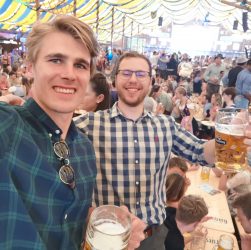I had always considered study abroad to be an amazing experience I had dreamt to partake in some day, but …


I had always considered study abroad to be an amazing experience I had dreamt to partake in some day, but …

DIME (Digital Industrial Management and Engineering) Masters at Hochschule Reutlingen If you are reading this post, you may have already …

Pre-departure Because the pre-departure excitement of going overseas and going on adventurous explorations can tend to overshadow some more necessary …